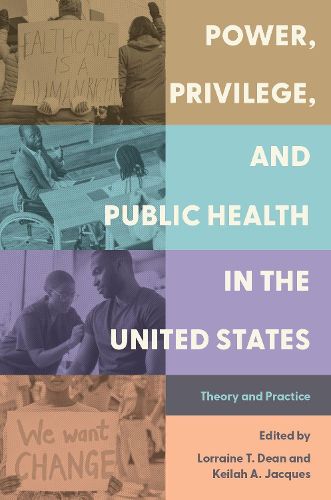Readings Newsletter
Become a Readings Member to make your shopping experience even easier.
Sign in or sign up for free!
You’re not far away from qualifying for FREE standard shipping within Australia
You’ve qualified for FREE standard shipping within Australia
The cart is loading…






How can we teach health professionals, who are among the most privileged in American society, to best serve those who are the least privileged in American society? Power, Privilege, and Public Health in the United States discusses the ways in which power and privilege along intersectional axes of race, gender, sexual orientation, ability, and other characteristics show up in public health and medicine practice, teaching, and research. It provides foundational knowledge on theories in power and privilege as well as examples of the ways in which the health and medical fields have been complicit in creating health inequities and maintaining oppressive structures that can be used to understand health distribution, differences, and disparities. To enact change, the contributors to this text enrich their chapters with practical guidance for developing anti-oppression competencies as well as experiential activities to examine how our own power and privilege influence the design, implementation, and interpretation of health studies and public health practice.
In drawing attention to the actors and institutions that have led to inequitable health outcomes, Power, Privilege, and Public Health in the United States does more than simply highlight the problems that plague health in the US; it equips teachers and learners with the tools to enact change, straight from leading experts in academia and public health practice.
$9.00 standard shipping within Australia
FREE standard shipping within Australia for orders over $100.00
Express & International shipping calculated at checkout
How can we teach health professionals, who are among the most privileged in American society, to best serve those who are the least privileged in American society? Power, Privilege, and Public Health in the United States discusses the ways in which power and privilege along intersectional axes of race, gender, sexual orientation, ability, and other characteristics show up in public health and medicine practice, teaching, and research. It provides foundational knowledge on theories in power and privilege as well as examples of the ways in which the health and medical fields have been complicit in creating health inequities and maintaining oppressive structures that can be used to understand health distribution, differences, and disparities. To enact change, the contributors to this text enrich their chapters with practical guidance for developing anti-oppression competencies as well as experiential activities to examine how our own power and privilege influence the design, implementation, and interpretation of health studies and public health practice.
In drawing attention to the actors and institutions that have led to inequitable health outcomes, Power, Privilege, and Public Health in the United States does more than simply highlight the problems that plague health in the US; it equips teachers and learners with the tools to enact change, straight from leading experts in academia and public health practice.